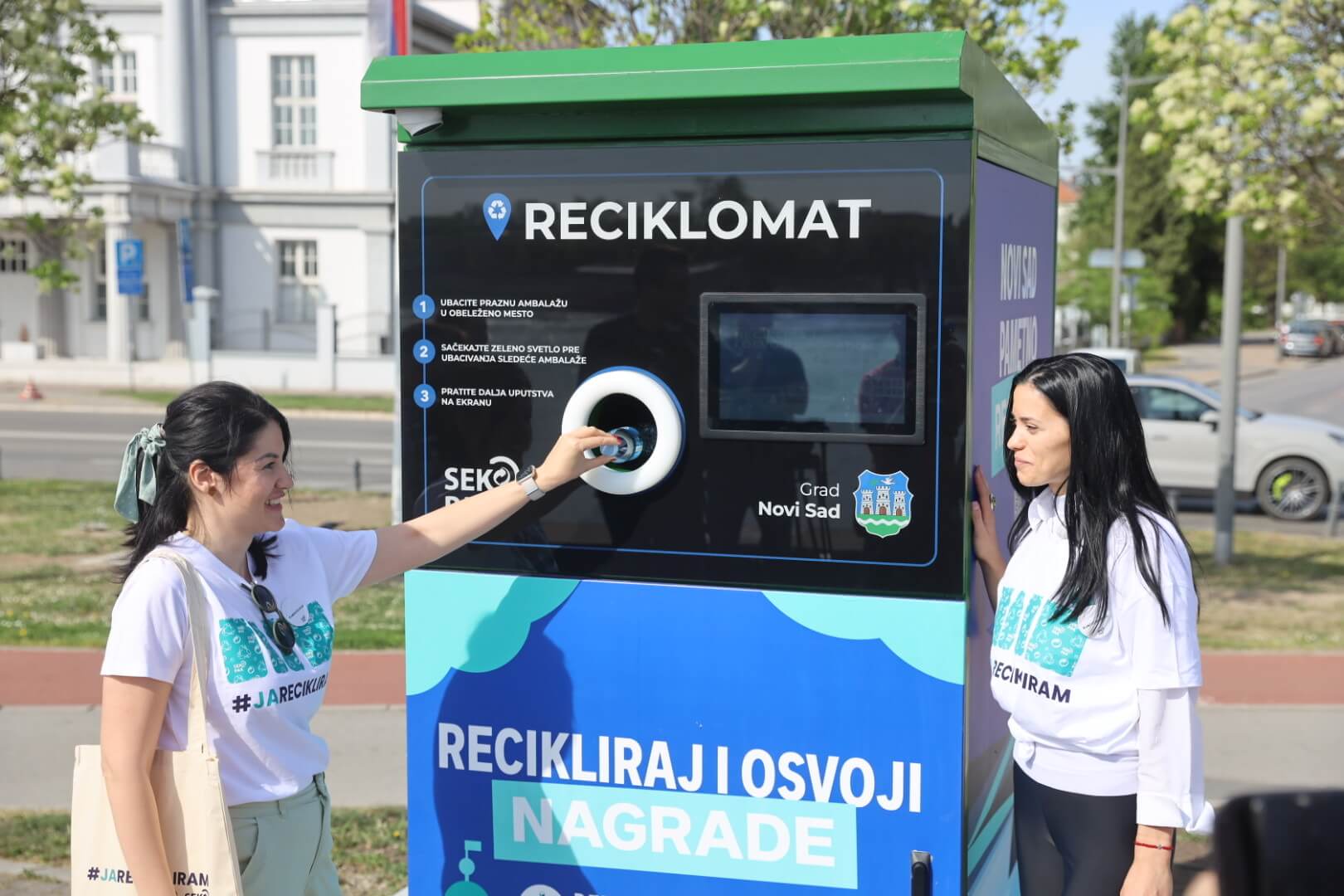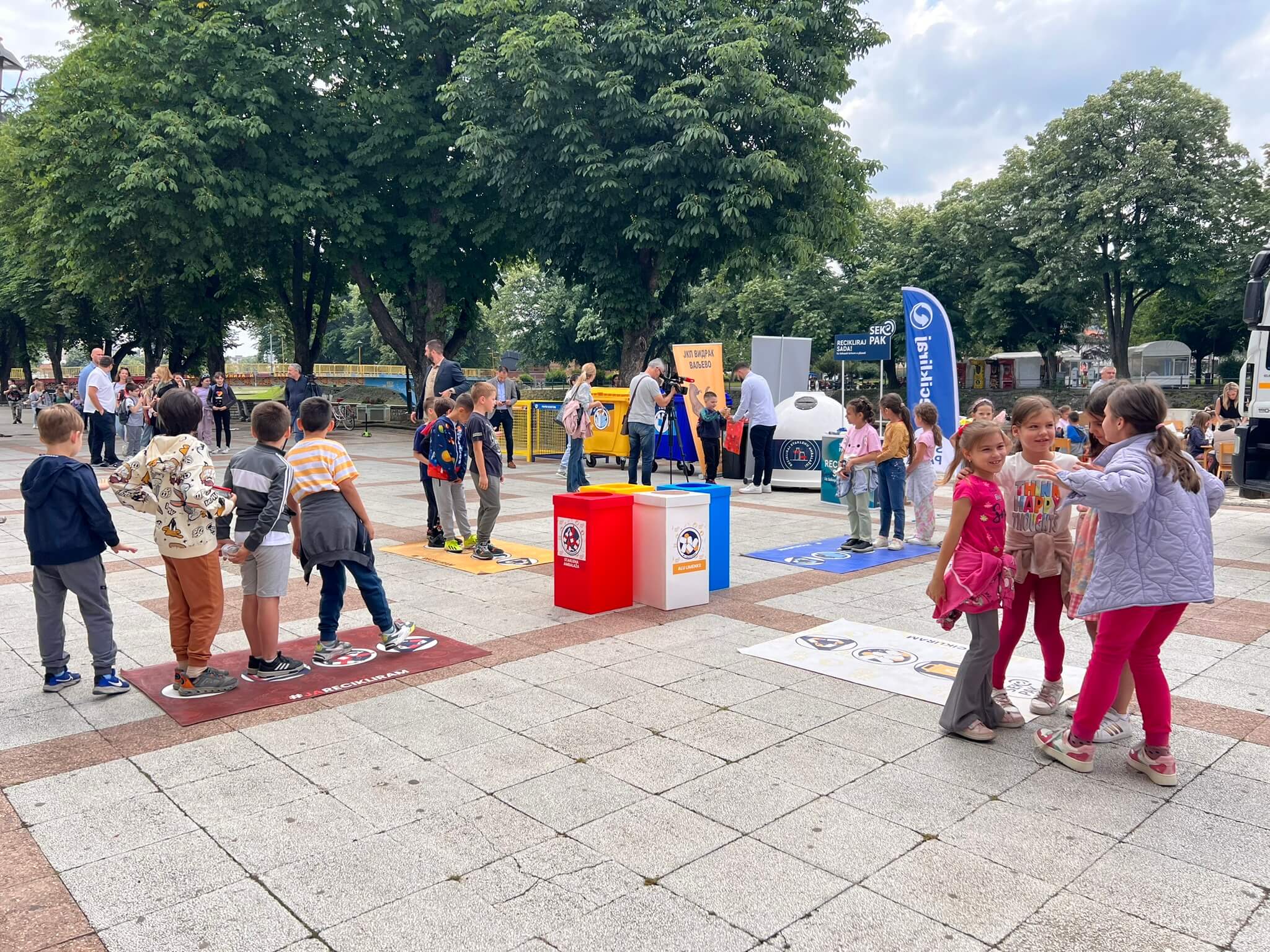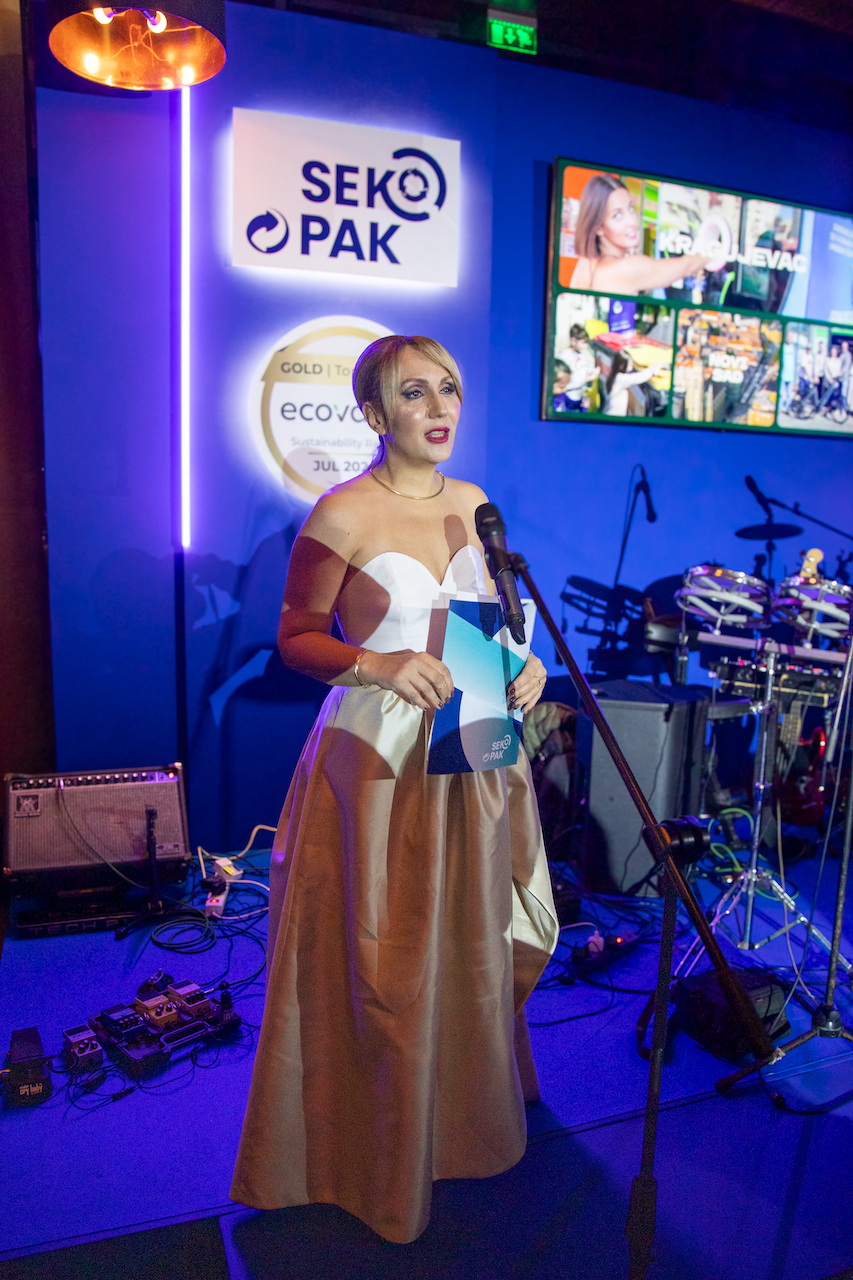Sekopak – 18 years of leadership in the circular economy
Sekopak laid the foundations of the circular economy in Serbia, becoming a synonym for responsible management of packaging waste. Through cooperation with local communities and industry – the company achieved recycling of 67 percent of packaging waste, while educating citizens and introducing innovative technologies, he says. Violeta Belanović, general director of the company Sekopak.
In an interview for BIZLife, she proudly points out that, with a gold certificate of sustainability among the five percent most sustainable companies, Sekopak continues to raise standards inindustries.
- How would you describe the trip? Sekopaka from its establishment until today? What, in your opinion, is the biggest success in these 18 years?
Sekopak was founded in 2006 as an association formed by leading companies in Serbia: Apatin Brewery, Ball Packaging Europe, Group Bambi, Carlsberg Serbia, Coca-Cola HBC, Fresh&Co, Prince Miloš i Tetra Pak Production. After the adoption of the Law on Packaging and Packaging Waste in 2010, Sekopak becomes the first operator of packaging and packaging waste management in Serbia, and today we are leaders in the industry with the largest amount of recycled packagingand waste.
Sekopak (Rudnik imagaination)
As the first operator, we followed every step in the development of the system, analyzed practices in European Union countries and adapted them to the specifics of Serbia. The greatest success in these 18 years is the creation of an efficient and sustainable system that supports the circular economy in Serbia, but also the trust we have built with partners, local communities and to citizens.
This success is due to our team, which faces challenges every day and invests efforts in every ton of recycled waste and in the motivation of every person to separate packaging waste. The collective in which we work, with open communication and mutual respect, is key to our results and beyond progress.
Sekopak is responsible for over 60 percent of the reduction of carbon dioxide emissions at the national level
- One million tons of recycled waste is exceptional result. What was crucial to achieve this?
The key factor for achieving this result is continuous cooperation with all members of the packaging waste management system, from industry to citizens, as well as investment in infrastructure for waste collection and recycling. Education and raising awareness about the importance of recycling played a vital role in achieving these results.
The packaging waste management system is complex, and its effectiveness depends on everyone in the chain of responsibility. By carefully listening to the needs of all parties, we managed to establish the foundations for successful cooperation. On the ground, in constant communication with public utility companies, we help them establish a good system. In addition to containers, bells and bins for the selective disposal of packaging waste, we also provide them with the necessary equipment, such as vehicles, so that they can function efficiently.

Shovel (Promo)
Sekopak enjoys the trust of leading corporations, who see us as a key partner and consultant in the field of responsible management of packaging and packaging waste. In cooperation with clients, we have implemented numerous projects that research and implement innovative practices, further improving the existing system recycling.
- Sekopak is among the five percent of the most sustainable companies on the market. What does this recognition mean to you and how do you perceive it?
As much as we influence the improvement of our clients’ business, they influence us as much. At the request of several German companies that are obliged to check their associates through the platform Eco Vadiswe collected detailed documentation and managed to get their gold certificate. This recognition confirms our commitment to sustainable business and motivates us to continue improving our practices. Being among the five percent of the most sustainable companies is an honor and an obligation to set higher standards in our industry and beyond. In addition, Sekopak is one of the first companies that introduced new ISO standards in the field of circular economy in Serbia. Sekopak is responsible for over 60 percent of the reduction of carbon dioxide emissions at the national level. This data additionally emphasizes the importance of continuous investment in sustainability and contribution to the protection of lifeit’s the middle.
- What were the biggest challenges while you were building the packaging waste management system in Serbia?
One of the biggest challenges at the very beginning was establishing an efficient system in a country with a lack of infrastructure and low awareness of the importance of recycling. Challenges are a constant in this industry. This year, the state introduced new targets for municipal waste, which further burdens operators. How Sekopak has been developing relations with public utility companies and setting up infrastructure for years, we welcomed this changeand ready.
Currently, 67 percent of packaging waste is recycled in Serbia, which is a good result, especially considering that the system was established only 14 years ago. Achieving these goals requires the synergy of all actors in order to ensure the sustainability of the system. We notice great interest from all parties, and soon, after the adoption of the Regulation on establishing the Plan for the reduction of packaging waste for the period from 2025 to 2029, it will be clearer how the system will functionZionists.

Shovel (Promo)
- As you can see today level of awareness about recycling in Serbia? What Sekopak to make that awareness even greater?
Awareness of recycling in Serbia is growing, which we can see from the amount of packaging waste collected and the reactions of citizens. By placing a bell for glass packaging, we motivated citizens to clean pantries and basements, giving glass packaging a new life. Today we have over 2000 bells in cities all over the worldof Serbia.
We use all communication channels to bring recycling closer to citizens. We do education in schools, in town squares, in companies and at events. This year we launched a promotion on Tiktok to attract the attention of tengineer.
Continuity in education is key. Sekopakov the caravan travels all over Serbia, talks to citizens and conveys information about benefits recycling.
- You plan to expand recycling capacity and improve infrastructure conditions. Can you reveal more about those projects?
In cooperation with local governments and public utility companies, we are working to improve the recycling infrastructure, including the installation of new containers for selective waste disposal and the implementation of smart technologies, such as recycling machines. Our next stop is Niš, where we will set up containers for plastic packaging and aluminum cans. We are also planning a newspaper in cooperation with HoReCa sector, in order to facilitate the management of packaging waste in catering objects.
Cooperation with the state, as the creator of the system, and partners from the industry is essential for the success of our activities
- What is the situation in HoReCa sector from your point of view? ŠWhat advice would you give to restaurant owners?
Restaurateurs are legally obliged to separate packaging waste within their facilities, and it seems to us that an increasing number of restaurateurs are aware of this. Since we launched the “Eco Partner” project, the number of responsible caterers in our system has increased and now we have them throughabout a thousand.
This project is a perfect example of how with the cooperation of us, as operators, restaurateurs from HoReCa sector and large corporations, we can all be closer to one great, civilizational goal, such as environmental protection. We also noticed that the inspection is increasingly checking whether restaurateurs separate packaging waste, and we would certainly appeal to those who do not do so to allocate space and time to devote themselves to this important topic, because packaging waste should not end up in a landfill. already on recycle.

Sekopak (Rudnik imagaination)
- How important is cooperation with partners and the state in achieving these results, and what would you single out as a key element of that cooperation?
Cooperation with the state, as the creator of the system, and partners from the industry is essential for the success of our activities. In cooperation with the Ministry of Environmental Protection and the Association of System Operators, we will continue to improve the packaging waste management system, along with changes in the law that will improve primary selection and education.in citizens.
Together with our collaborators, we carried out a series of projects in order to examine the best practices applicable in Serbia. The projects “Management of glass packaging in the Western Balkans”, “Recycle smartly” in Zrenjanin, installation of recycling machines in Novi Sad, Aranđelovac, Niš and Kragujevac and others – showed how synergy can improvein the system.
- What would you say to colleagues, partners and citizens on the occasion of this jubilee? As you imagine Sekopak in the next 18 years?
I want to thank everyone who contributed to this journey – colleagues for their commitment, partners for their trust and citizens for their support and involvement. Each of our steps forward was possible thanks to joint efforts all of us.
We are working together on an important topic that has an impact on all citizens of the Republic of Serbia. We believe that in 18 years we will have an elaborate, efficient system in which all citizens have the opportunity to separate packaging from that in their neighborhood and that recycling will become part of our everyday life. Sekopak I see it as a leader in innovation in the field of packaging waste management and as a company that sets standards for sustainable business in Serbia.
Source: BIZLife Magazine
Photo: Rudnik imagination/Promo
Source: bizlife.rs


